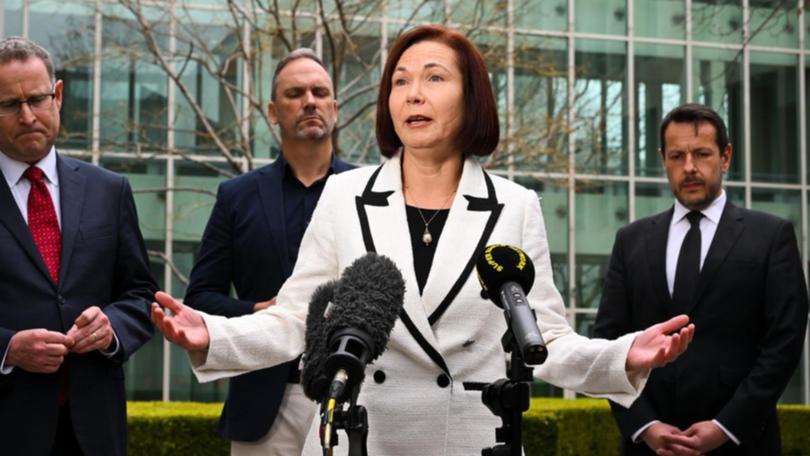Minerals Council chief Tania Constable warns against ‘short-lived sugar hits’ from Labor’s Future Made
The boss of the nation’s peak resources lobby group has joined the growing opposition against the Future Made in Australia plan, saying the initiative will “lock taxpayers into paying for long-term subsidies”.

The boss of the nation’s peak resources lobby group has joined the growing opposition against Federal Labor’s Future Made in Australia plan, saying the protectionist initiative will “lock taxpayers into paying for long-term subsidies”.
Earlier this month, the Albanese Government unveiled a scheme — the Future Made in Australia Act — to subsidise the clean energy and manufacturing sector, in a similar vein to the US Inflation Reduction Act.
The proposal is set to be a major centrepiece of next months’ Federal Budget but has already garnered fierce criticism from business and economic policy heavyweights.
Sign up to The Nightly's newsletters.
Get the first look at the digital newspaper, curated daily stories and breaking headlines delivered to your inbox.
By continuing you agree to our Terms and Privacy Policy.Minerals Council of Australia chief executive Tania Constable said to attract more investment to Australia getting the policy settings right was more important than direct government intervention.
“We should not forget that it is companies that create competitive industries, not government,” she told The West Australian.
“Government’s role is to create the environment necessary for companies to be internationally competitive.
“Unless the policy interventions we have seen on industrial relations, energy, tax, and royalties are addressed comprehensively, it will continue to send the message to the global investment community that Australia is not an attractive place to do business.”
Ms Constable warned that Australian taxpayers would be big losers from the scheme.
“We must ensure there is a clear-eyed focus on securing our future prosperity by enhancing our competitive advantages, rather than merely providing short-lived sugar hits that lock taxpayers into paying for long term subsidies,” she said.
“It is important that the government’s approach be one of enabling rather than prescribing.
“It must be a catalyst for driving the investment needed to lift productivity and we must avoid the pitfalls of picking winners, which will distort the markets, stifle genuine competition and put at risk our living standards.”
The Productivity Commission — a high-powered office independent of government — has also cautioned that the Future Made proposal is likely to carry an immense price tag and risks creating industries that are reliant on long-term taxpayer support.
The current Productivity Commission chair, Danielle Wood, has said the Future Made proposal risks creating an ecosystem of businesses that will always reliant on subsidies.
Ms Constable’s comments come days after the Productivity Commission’s inaugural chair — Professor Gary Banks — lambasted Future Made as a “fool’s errand”.
Before that, Peter Harris — another former Productivity Commission chair — said that governments have a history of failure from interventions.
WA Premier Roger Cook hit out at criticism of the proposed Act last week, saying ‘only a loser would suggest’ that a government shouldn’t directly involve itself in taking advantage of the energy transition.
“It is absolutely important that the Commonwealth does what it can to support Australia moving into these low emissions and energy transition-related industries, particularly in relation to manufacturing,” he said.
